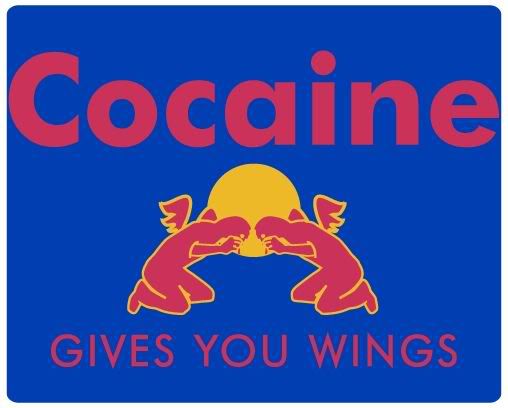

HONG KONG (AFP) – Hong Kong officials say they have found traces of cocaine in cans of Red Bull, a few days after Taiwanese authorities confiscated close to 18,000 cases of the popular energy drink.
Officials at the Centre for Food Safety said a laboratory analysis found tiny amounts of the illegal drug in samples of "Red Bull Cola," "Red Bull Sugar-free" and "Red Bull Energy Drink", a spokesman said.
The drink has now been taken off the shelves of major supermarkets, the spokesman said in a statement issued late Monday. He added that the amount of cocaine found in the drinks posed little health danger.
Red Bull moved quickly to deny the findings and said independent tests on the same batch of drinks had found no traces of cocaine.
The Centre for Food Safety found traces of cocaine between 0.1 and 0.3 micrograms of the illegal drug per litre, the statement said.
Hong Kong's commissioner for narcotics, Sally Wong, said the government was now taking legal advice on any possible liability for importers and retailers.
"Cocaine is a dangerous drug... The possession and dealing in the drug is a criminal offence," she said in the statement.
Red Bull's Asia Pacific marketing director, Daniel Beatty, said the firm strongly disputed the findings.
"It would have been absolutely impossible for the Hong Kong or any other authorities to have found traces of cocaine in Red Bull Energy Drink," he said in a statement.
"We expect the Hong Kong authorities to recognize their error soon," he said, adding the firm's representatives were already meeting with Taiwanese authorities to point out the error.
Taiwan officials said Saturday they had confiscated nearly 18,000 cases of Red Bull imported from Austria after finding it contained traces of the drug.
Taiwanese authorities ordered the drinks to be removed from shelves pending further investigation.
Red Bull, whose advertising slogan is "Red Bull gives you wings," was founded by Austrian toothpaste salesman Dietrich Mateschitz in the 1980s.
It has since become one of the dominant players in the global energy drinks market.
http://news.yahoo.com/s/afp/20090602...gsdrinkredbull
 Red Bull says coca leaf extracts were used worldwide as a natural flavouring
Red Bull says coca leaf extracts were used worldwide as a natural flavouring
Comment